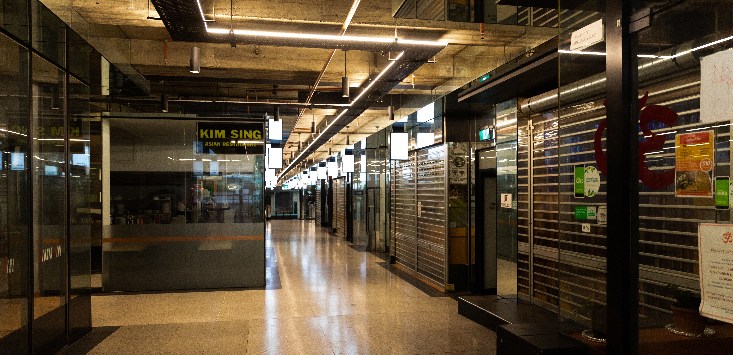
Source: Asanka Brendon Ratnayake
The stigma associated with reaching out for help is harming small businesses struggling to keep up with their energy bills, a new report says, with business groups and market analysts calling on hard-hit firms to negotiate with their power provider as prices surge.
A major report from the Council of Small Business Organisations Australia (COSBOA) and Energy Consumers Australia Limited, released Tuesday, shows how the power bills of Australian businesses fell into arrears through the COVID-19 pandemic.
A third of small businesses delayed paying their energy bills as financial conditions worsened, the report said. And as of January, one in five small business operators had a power debt that was still being paying off.
That bill “hangover” is acting as a “handbrake on the recovery of the Australian economy”, COSBOA CEO Alexi Boyd says, as businesses are paying down yesterday’s debts instead of focusing on today’s challenges.
Recent power prices will only exacerbate that repayment stress, as businesses face an energy market skewed by high demand, low natural gas supplies in the domestic market, and a lack of renewable energy infrastructure.
But changing the ways small businesses look for help may soften the blow, the report says.
Debt “stigma” keeping small businesses from energy help
Of those who faced energy hardship through the pandemic — that is, difficulty paying a bill — 21% turned to credit cards to pay down what they owed, and 14% took out a loan or mortgage to cope with their energy obligations.
44% of businesses did not access temporary support from their power provider.
Small businesses should be aware of the assistance power providers can offer before turning to costly stopgaps, the report says.
One barrier is the negative perception of reaching out for help, which may be keeping small businesses from accessing payment plans, repayment holidays, or power plans more suited to their needs.
“There is a fear of going into ‘debt’ amongst SMEs, and a distrust in declaring financial hardship,” the report said.
“Many SMEs were cynical of a ‘handout’ and worried about having to pay back support.”
Power providers could also be clearer about the options available to struggling small businesses, with 18% of firms saying it was difficult to find the right information.
Others simply did not know help of any kind was available.
“When an energy bill is received, this is seen as a ‘mandatory’ enforceable cost that is owed by a due date,” the report added.
“There was not seen to be an option to discuss payment flexibility with the energy provider so many did not approach their energy provider, as they thought there would be no point despite being in financial distress.”
Energy Consumers Australia CEO Lynne Gallagher says it was incumbent on power providers to meet small businesses halfway.
“The research clearly shows that flexibility to pay bills, proactive support and better communication from energy providers are all extremely helpful to supporting small business during difficult times like the COVID-19 pandemic,” she said.
Crisis meeting agrees to gas storage; focus on renewables
The report arrived the same day as a crisis meeting between federal and state energy ministers, designed to find solutions to rapidly rising costs and ward off similar power chaos in the future.
One of eleven solutions was the decision to allow the Australian Energy Market Operator (AEMO) the ability to store natural gas in reserve, allowing it to supplement the market in times of extreme demand.
“We agreed to work to give AEMO that power and to give them that power expeditiously,” new Energy Minister Chris Bowen said Wednesday night.
However, the meeting largely focused on longer-term solutions.
Appearing on Sunrise Thursday morning, Bowen said the current crisis only showed the need for more access to renewable energy generation.
“In fact, the transition is even more important now,” he said.
“The sorts of things that we need to do to invest in transmission and storage are even more important and that’s why were in this mess.”
Handpicked for you

Labor calls for wage increase to assist “heroes of the pandemic”



COMMENTS
SmartCompany is committed to hosting lively discussions. Help us keep the conversation useful, interesting and welcoming. We aim to publish comments quickly in the interest of promoting robust conversation, but we’re a small team and we deploy filters to protect against legal risk. Occasionally your comment may be held up while it is being reviewed, but we’re working as fast as we can to keep the conversation rolling.
The SmartCompany comment section is members-only content. Please subscribe to leave a comment.
The SmartCompany comment section is members-only content. Please login to leave a comment.